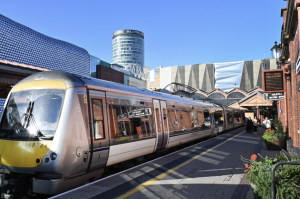Inflation falls below 2% for first time since 2009

INFLATION has dropped below the Government’s 2% target figure for the first time since November 2009, latest data has shown.
Figures released by the Office for National Statistics show a 1.9% growth in Consumer Prices Index (CPI) in the year to January 2014, down from 2% in December 2013.
The ONS said that putting the CPI figure into context, a basket of shopping that cost £100.00 in January 2013 would have cost £101.90 in January 2014. There was a comparable drop to 1.8% from 1.9% in the rate of inflation as measured by the CPIH measure which includes owner occupiers’ housing costs.
The fall was the result of price movements for recreational goods & services, furniture & household goods and alcoholic beverages & tobacco. These were partially offset by price movements for miscellaneous goods & services.
The fall was welcomed by the Birmingham Chamber of Commerce, where president Tim Pile said the drop was another indication that the UK was returning to economic growth.
“This fall is largely driven by retailers slashing prices, slight easing of petrol costs and relatively low increases in energy tariffs. However, there is still a way to go before businesses feel the full benefit of economic recovery,” he said.
“Productivity is not increasing at the same pace as other indicators and while retailers are cutting the price of consumer goods, costs for businesses remain relatively high. This is particularly true for manufacturers in Greater Birmingham.”
Ninder Johal, Vice President of Black Country Chamber of Commerce, agreed the news was positive.
“This will help to strengthen the Bank of England’s revised forward guidance policy that an early rise in interest rates is neither necessary nor likely,” he said.
“The low inflation and low interest rates will allow firms to look to future development. The economy still faces challenges and the Budget announcement next month will be very interesting to see what measures the Chancellor will implement to boost the economy.”







